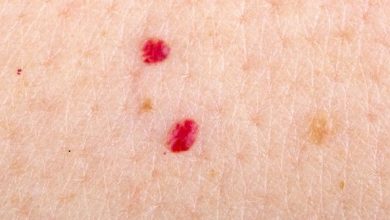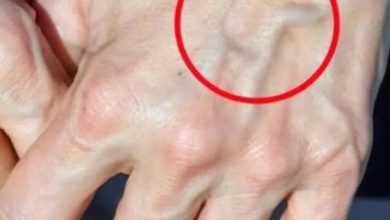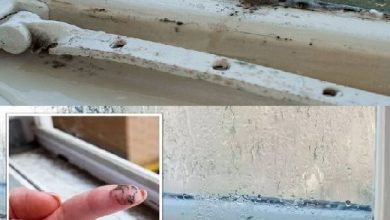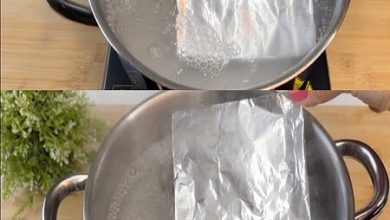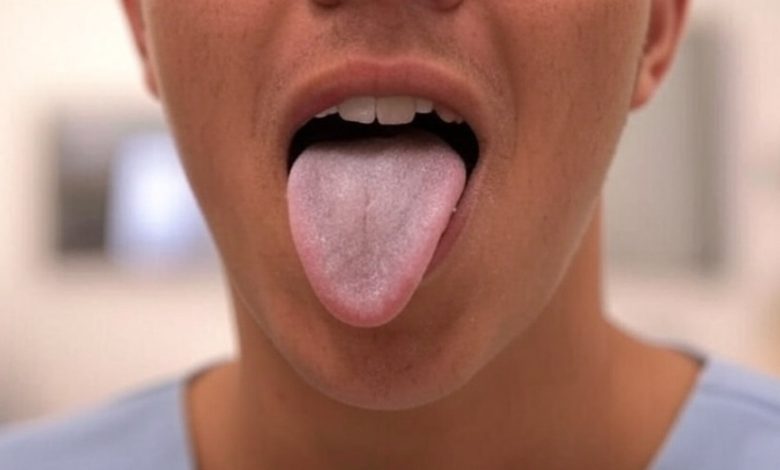
If your tongue is white, this is a clear sign that you are suffering from…
A white tongue can be an indication of various underlying health conditions, and while it is often harmless, it can sometimes signal a more serious issue. The tongue may appear coated in white patches or have an overall white appearance due to a buildup of debris, bacteria, and dead cells. This can be caused by multiple factors, ranging from minor concerns to more significant health conditions.
ADVERTISEMENT
Common Causes of a White Tongue
- Oral Thrush (Candidiasis)
- This is a fungal infection caused by an overgrowth of Candida yeast in the mouth. It often appears as creamy white patches on the tongue, inner cheeks, and throat. It is more common in people with weakened immune systems, those taking antibiotics, diabetics, and denture wearers.
- Dehydration or Dry Mouth
- When the body lacks sufficient hydration, saliva production decreases, leading to a dry mouth. This dryness can cause a buildup of bacteria and dead cells on the tongue, resulting in a white coating.
- Poor Oral Hygiene
- Not brushing the tongue regularly can lead to the accumulation of food particles, bacteria, and dead cells, which can create a white film over the tongue’s surface.
- Leukoplakia
- This condition leads to thick, white patches on the tongue and inside the mouth. It is often caused by chronic irritation, such as smoking, alcohol use, or rough teeth. While usually harmless, leukoplakia can sometimes be a precancerous condition, so a doctor should evaluate it if it persists.
- Geographic Tongue
- This is a benign condition in which patches of the tongue lose their normal coating, creating smooth, red areas surrounded by white borders. The patterns may change over time, and while it is harmless, it can sometimes cause mild discomfort.
- Lichen Planus
- A chronic inflammatory condition that can affect the inside of the mouth, causing white, lacy patches on the tongue and inner cheeks. The exact cause is unknown, but it is believed to be related to an immune system disorder.
- Syphilis
- In its secondary stage, syphilis (a sexually transmitted infection) can cause white patches on the tongue and mouth. This condition requires immediate medical treatment with antibiotics.
When to See a Doctor
While a white tongue is often harmless and can resolve with proper hydration and oral hygiene, you should see a doctor or dentist if:
ADVERTISEMENT
- The white coating lasts more than two weeks.
- You experience pain, burning, or difficulty swallowing.
- You notice red patches, sores, or bleeding.
- You have a weakened immune system or an underlying health condition.
Treatment and Prevention
- Maintain Good Oral Hygiene – Brush your tongue daily and use an antibacterial mouthwash.
- Stay Hydrated – Drink plenty of water to prevent dry mouth.
- Avoid Tobacco and Alcohol – These can irritate the tongue and contribute to white patches.
- Eat a Balanced Diet – Nutrient deficiencies can impact oral health.
- Visit Your Dentist Regularly – Routine check-ups can help identify and treat oral health issues early.
If your tongue remains white despite good hygiene, it may be a sign of an underlying condition that requires medical attention.

